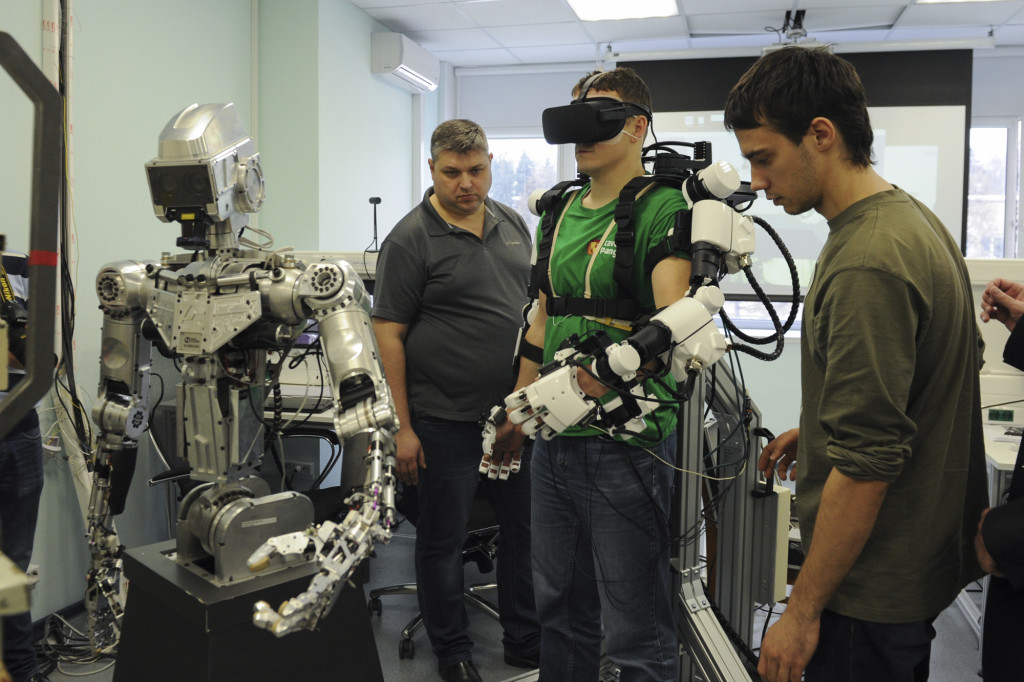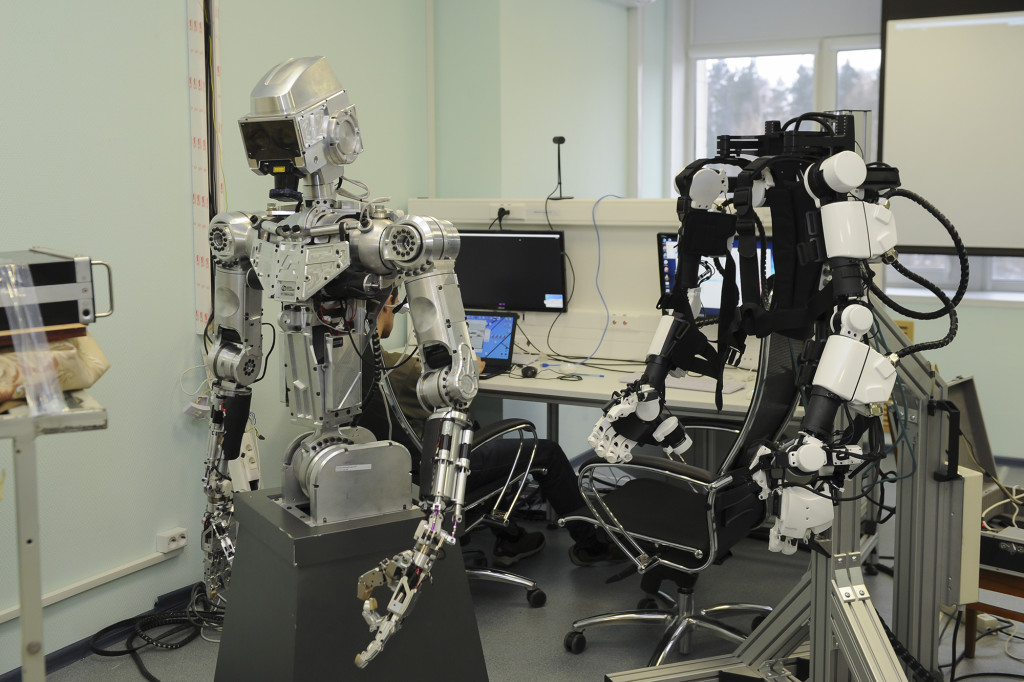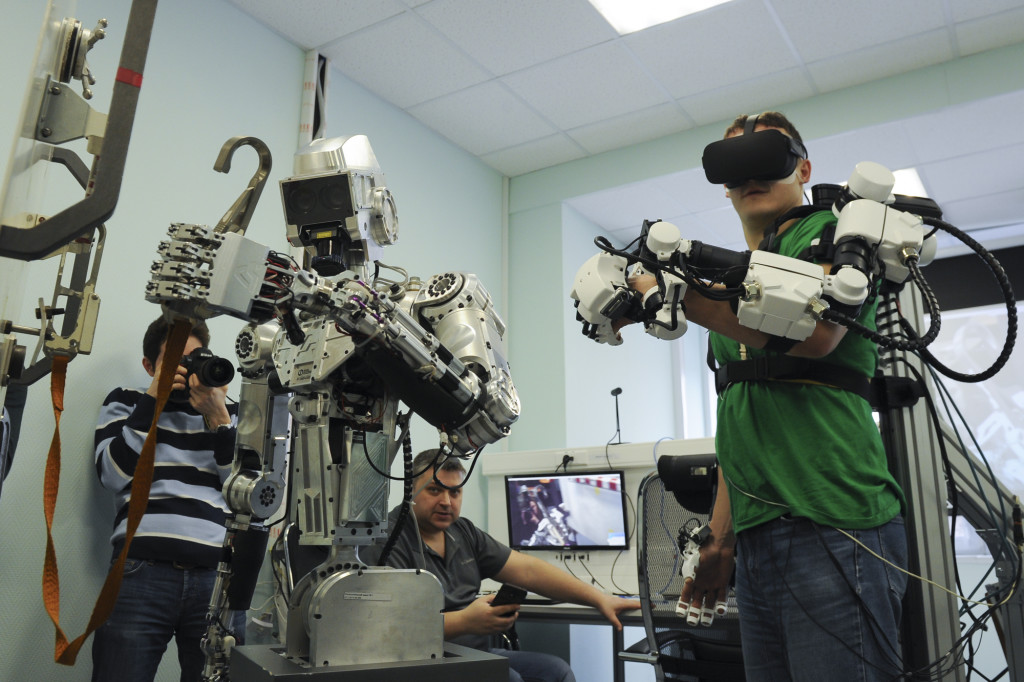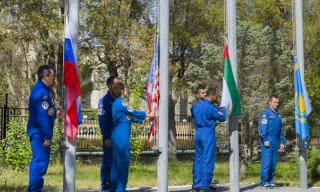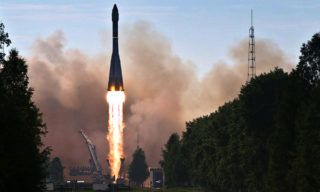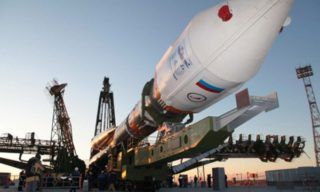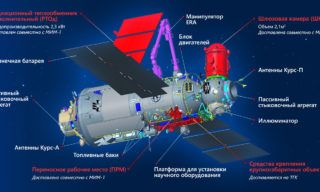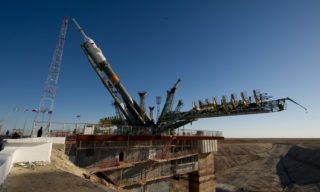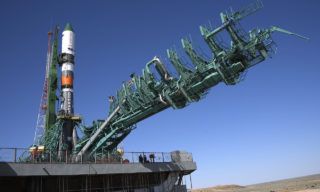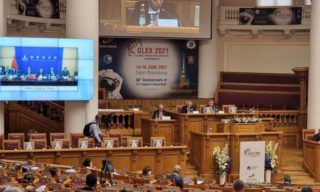Today, at the GCTC has completed experimental studies on the development of interactions between the cosmonaut and the anthropomorphic robot, which is controlled in a teleoperator mode.
The goal was to develop a standard technique, that could be further replicated for various studies.
As test operators, six test cosmonauts led by Oleg Novitsky, acting cosmonauts team commander, as well employees of the GCTC took part in the experiment.
Since at the beginning there was no understanding of how quickly an cosmonaut could train for robot telecontrol, for each operator, the experiment staff did two two-hour sessions.
The first is a training one, where the cosmonaut initially works without virtual reality glasses, adapts to the exoskeleton (master), performs operations, observing with his own eyes what he does.
And then performs experimental actions already in glasses of virtual reality, looking at things through the eyes of a robot.
As a result – two hours is more than enough for our cosmonauts.
Everyone quickly learned to control an anthropomorphic robot.
The second lesson is a checking test, where time and quality of operations were recorded.
As a result, the staff of the experiment concluded, that a person very quickly adapts to simple operations.
The experiment equipment includes a screen, a projector, automated workplaces of the experiment support team.
Now it is exploring an anthropomorphic robot, created by the NPO “Android Technics”, with which the GCTC has been cooperating for a long time.
But in the future, the interaction of cosmonauts with any other space robots will be tested here.
